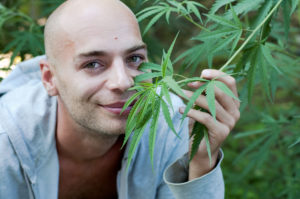Using cannabis and cannabinoids to treat various conditions is seen as controversial when it comes to treating children. Yet, for all the controversy, it seems strange that people are so critical of cannabis when there are many drugs that are far more addictive and dangerous than cannabis being prescribed to children. Take childhood epilepsy (e.g. Dravet Syndrome), for example, where children are given all sorts of highly addictive antiseizure drugs and benzodiazepines, many of which can cause long-lasting damage if taken too regularly for too long.
So, why are so many doctors and scientists excited about cannabis as medicine for children?
The Positives – Cannabis & Kids
There is a lot of interest in cannabis as a medicine for kids. There are several, excellent reasons why, including:
- There are few if any medications out there that are as safe as cannabis when it comes to overdosing or addiction. Cannabis’s safety margin makes it an especially good candidate for children’s medicine.
- Cannabis could potentially be useful for a wide variety of conditions, from headaches to cancer. There aren’t many other substances out there that beat cannabis’s therapeutic potential for so many different health problems.
- Cannabis can possibly help with different kinds of pain, including neuropathic (nerve), muscle, and emotional & psychological pain – opioid-, barbiturate- and benzodiazepine- based painkillers don’t necessarily work on different types of pain, whereas cannabis shows potential for being a “total” painkiller.
- The phytocannabinoids and terpenoids found in cannabis, and the way in which they interact with one another, makes cannabis very unique. This complexity is what makes cannabis scientifically and medically interesting.
- Cannabis is a medication that can be grown in an enclosed space, almost anywhere!

Are There Any Potential Negatives or Criticisms?
Well, if we are to take cannabis as medicine, then we have to be as objective as possible. This means looking at any potential problems cannabis may have. Many of these problems arise from the fact that cannabis is federally illegal, which has an impact upon what sort of research can be carried out on it.
- Not all cannabis-based products are made equal. Hemp-based CBD, for example, is often made by extraction methods using harsh chemicals, and have not necessarily been tested for pathogens (mould, bacteria etc.), heavy metals, pollutants and harmful pesticides and herbicides. Moreover, while CBD could very well help epileptic children, CBD derived from hemp plants may make seizures worse.
- There is also lots of concern regarding the accuracy of cannabis and cannabis-based products’ labelling. Do the cannabinoid levels and ingredients in the product match up to the labels? Most research suggests it does not, which is a big problem when it comes to patients knowing what they’re getting and dosing.
- Much of the therapeutic value in cannabis comes from its cannabinoid and terpenoid profile, and how this works on an individual’s endocannabinoid system (ECS). Figuring out what sorts of cannabinoid and terpenoid concentrations can be helpful and which ones could be harmful for people suffering from specific conditions is of utmost importance.
- Titration is also a big issue – how much and what type of florida medical marijuana cannabis per day do you need to get the therapeutic effects you need from it? How many times a day should you use it? Sadly, it is difficult to say for sure, due to the lack of research and funding. There are, however, companies like eDocGreen are doing an excellent job in this regard.
- Method of ingestion is also a concern. At the moment, most cannabinoid-based medications made for child medical patients in mind come in the form of oil-based tinctures and sprays. Whether or not this is the best or most effective method of ingestion remains to be seen, although it makes sense due to the relative safety and ease of absorption of high-quality (usually coconut, MCT or olive) oils. Edibles are also sometimes used for children as well, but tinctures can provide more immediate relief as they can, but not always, take effect quicker. Tinctures are also easier to measure in terms of dosage.
- Interactions with other drugs and medications. Extra care must be taken when using cannabis in conjunction with any other medications.
- There is a lot of interest surrounding cannabinoids’ and terpenoids’ effect on the brain. There is some evidence coming out that microdosing THC may help promote neurogenesis in older people, but be detrimental to teenagers and the young. Again, this poses many questions. “Is cannabis necessarily any more or less damaging than some of the drugs and medications we already give sick children?” “If endocannabinoid deficiencies are a cause of conditions, is it not possible that cannabinoids and terpenoids could be medicine for many people, children included?” Just as we do with any other medicine, we ought to weigh the positives with the negatives, and see how that applies to each specific condition over the short-, medium- and long- term.
- What Should Parents Look Out For in Cannabis Products for Their Kid or Kids?
Obviously, medications in areas of Orlando Florida near me should be made to the highest of standards. This means asking of cannabis the same questions you’d ask of any other treatment or medication. There are perhaps 5 main questions:
1) “Is cannabis safe?”
2) “What’s gone into making cannabis medications?”
3) “What evidence is there showing that cannabis works?”
4) “Where’s the best place to get the best cannabis-based treatment or medicine?”
5) “How do I get a medical marijuana card for my child?”
We’ll tackle these questions one-by-one.

Is Cannabis Safe?
The simple answer is, “there just aren’t enough studies to know for sure yet.” However, what we can do is go on the evidence available. So far, nobody has died from an overdose of cannabis (p. 75). Cannabis is not “addictive” in the way many pharmaceutical prescriptions are, and “withdrawal” from cannabis is never deadly and rarely if ever uncomfortable for any major period of time. The physiological and psychological effects of cannabis are often far more manageable than the side-effects of many pharmaceuticals.
Perhaps the main concern with cannabis is the effect it has on the brain, and how safe it is in particular for young people. Of course, these sorts of things should be looked at regarding any medication, but as people like to be critical of cannabis in particular, it can actually serve as an example of the way we treat medications as a whole. Yes, using may be harmful for some young people, but for others it may prove beneficial. Many of the negative effects of THC may be reduced by CBD and other cannabinoids and terpenoids as well, making the entourage effect especially important.
As everyone’s ECS is different, and if some conditions are caused by an underlying endocannabinoid deficiency, then it makes sense that cannabis can be medicine for at least a certain percentage of the population. The problem now comes with determining which precise cannabinoids and terpenoids are of use for which condition, in which sort of concentrations and at what dosages. This will be difficult to determine until restrictions on research are lifted.
How Do I Find a Medical Marijuana Doctor?
Start by calling us at eDocGreen! We’ll here to guide you and help however we can. To give you the gist of what you need to do to get licensed by a marijuana doctor in florida for you or your kid, you should:
- Be the official caregiver for your child.
- Consider the necessary qualifications to be a caregiver – for some conditions, specialist classes and courses must be taken in order to be considered an eligible caregiver.
- Have medical proof that your child suffers from a condition deemed “acceptable” under the medical marijuana program.
- Have the appropriate identification and proof of address.